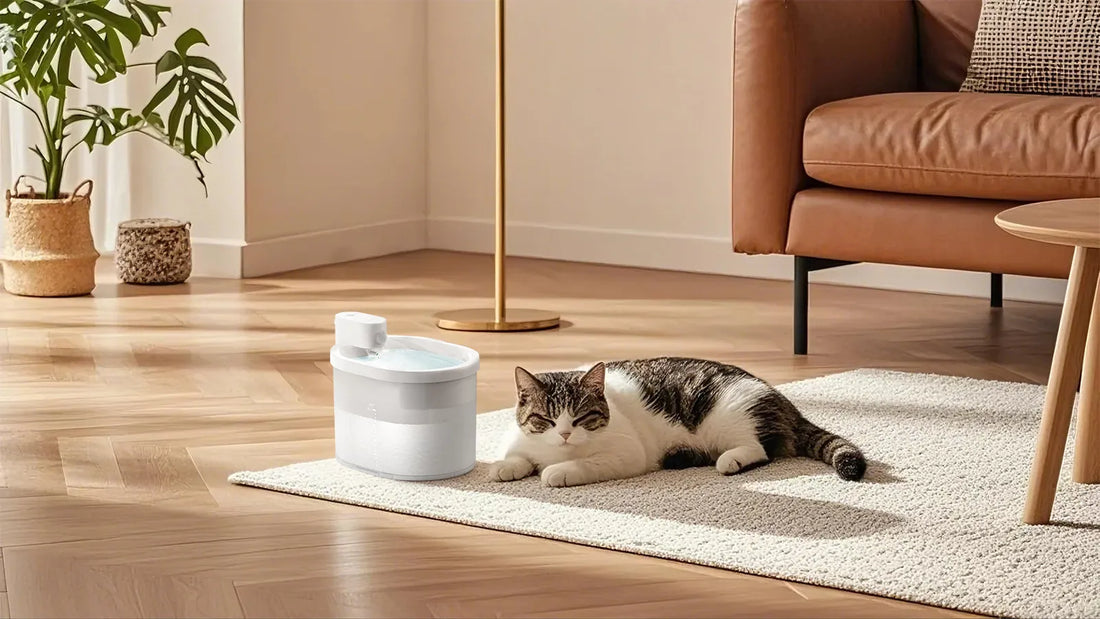When your dog isn't drinking water, it can be a cause for concern. Water is essential for your pet's health, and a lack of hydration can lead to serious complications. Understanding the reasons behind this behavior and knowing how to address it is crucial for every dog owner.
Why Is Water Important for Dogs?
Water plays a vital role in maintaining your dog's overall health. It aids in digestion, regulates body temperature, and supports organ function. Without adequate hydration, dogs can experience dehydration, which can lead to kidney problems, urinary tract infections, and even organ failure.
Common Reasons Why Your Dog Isn't Drinking Water
There are several reasons why your dog might be avoiding water. Identifying the cause is the first step toward finding a solution.
1. Illness or Pain
If your dog is unwell or in pain, it may refuse to drink water. Conditions such as dental issues, throat infections, or gastrointestinal problems can make drinking uncomfortable. If you suspect illness, consult your veterinarian immediately.
2. Stress or Anxiety
Changes in environment, routine, or the presence of new pets or people can cause stress or anxiety in dogs. This emotional distress can lead to a decreased appetite and reluctance to drink water.
3. Dirty Water Bowl
Dogs are sensitive to cleanliness. If their water bowl is dirty or contaminated, they may avoid drinking from it. Ensure the bowl is cleaned regularly and filled with fresh water.
4. Change in Water Source
Dogs can be particular about the taste and smell of water. A sudden change in water source, such as switching from tap water to filtered water, might deter them from drinking.
5. Overhydration
While rare, some dogs may drink excessive amounts of water, leading to a temporary disinterest in drinking. This behavior can be a sign of underlying health issues and should be monitored closely.
What to Do If Your Dog Isn't Drinking Water
If your dog isn't drinking water, take immediate steps to address the issue. Here are some practical solutions:
1. Encourage Hydration
Try adding flavor to the water by mixing in low-sodium broth or offering ice cubes as a treat. This can make drinking more appealing to your dog.
2. Monitor Their Health
Keep an eye on your dog's behavior and physical condition. Look for signs of dehydration, such as dry gums, lethargy, or sunken eyes. If symptoms persist, seek veterinary care.
3. Clean the Water Bowl
Ensure the water bowl is clean and free from contaminants. Use stainless steel or ceramic bowls, as plastic can retain odors and bacteria.
4. Provide Multiple Water Sources
Place water bowls in different areas of your home to encourage your dog to drink. Some dogs prefer drinking in quiet, secluded spots.
5. Consult a Veterinarian
If your dog continues to avoid water or shows signs of illness, consult a veterinarian. They can diagnose any underlying conditions and recommend appropriate treatment.
Preventing Dehydration in Dogs
Prevention is always better than cure. Here are some tips to ensure your dog stays hydrated:
1. Maintain a Consistent Routine
Establish a regular feeding and watering schedule to encourage consistent hydration habits.
2. Offer Wet Food
Incorporate wet food into your dog's diet, as it contains higher moisture content than dry kibble.
3. Keep Water Accessible
Ensure your dog has access to fresh water at all times, especially during hot weather or after physical activity.
4. Monitor Water Intake
Track how much water your dog drinks daily. This can help you identify any changes in their drinking habits.
5. Use a Pet Fountain
Some dogs prefer running water. A pet fountain can entice them to drink more frequently.
When to Seek Professional Help
If your dog's refusal to drink water persists for more than 24 hours or is accompanied by other symptoms such as vomiting, diarrhea, or lethargy, seek immediate veterinary attention. Early intervention can prevent serious health complications.
Ensuring your dog stays hydrated is essential for their well-being. By understanding the reasons behind their reluctance to drink and taking proactive measures, you can keep your furry friend healthy and happy. Don't wait until it's too late—act now to address any hydration concerns and give your dog the care they deserve.













